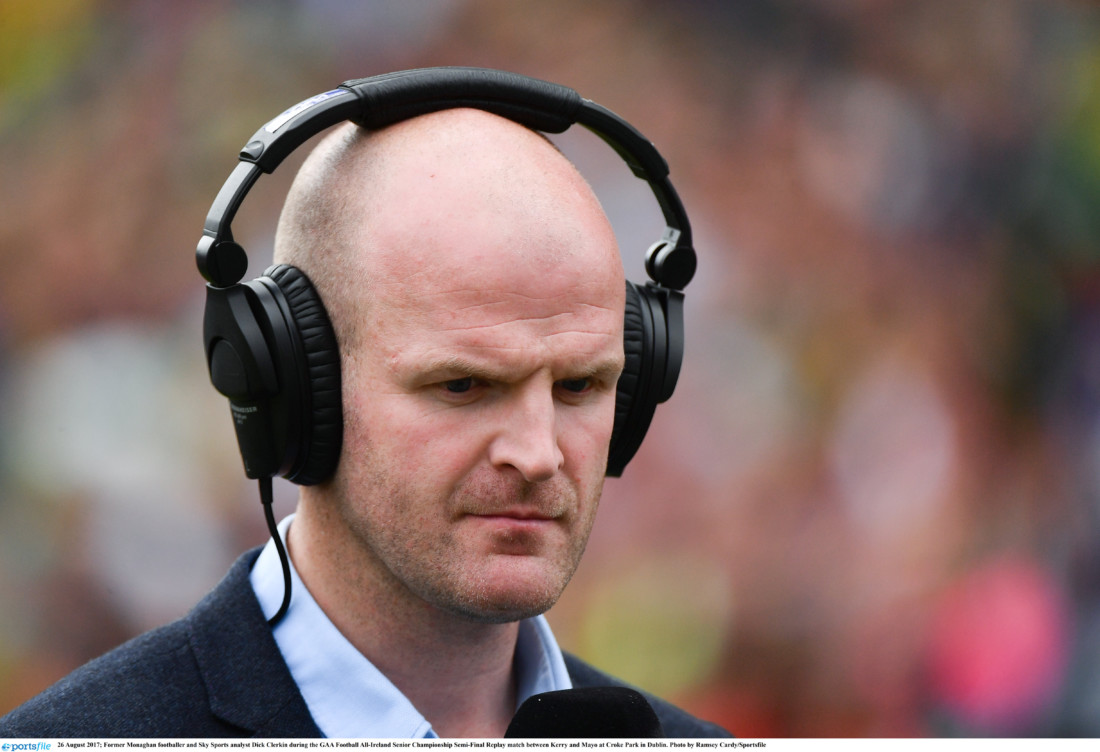By Niall McCoy
MONAGHAN man Dick Clerkin, who chairs the GAA’s Medical, Scientific and Welfare Committee, has said that the introduction of a concussion substitute could be a game-changer for the issue if passed by Congress later this month.
Back in 2016 the committee had looked at the motion but opted against trying to push it through, but now it will go before delegates and the Currin native is hopeful that there should be little opposition given the significance of the rule.
Like the blood sub rule, it would allow players to be temporarily removed from the pitch for assessment while another player takes their place. That will give more time for the player to be assessed properly rather than a snap decision having to be made on the pitch, the committee argues.
“Hopefully it will get voted through at Congress,” said Clerkin. “It will be called the concussion sub rule, it will be a temporary sub rule for head injuries.
“We pushed that for the last three years. There was a lot of resistance to it originally but as that whole conversation changed, we had to recognise that the GAA needs to have a better GAA solution for a GAA problem.
“That needs to be the case at intercounty Croke Park level but, equally, at Junior B level where you mightn’t always have the full medical staff to engage.
“We needed to do something better because too many players were staying on the field of play. Hopefully this rule will be a step in the right direction and I’d be delighted if it’s passed because it will make a positive change to the game.”
Match officials will also have the ability to order a player off if they feel an assessment is necessary while the committee is confident that any misuse of the potential substitution to gain an advantage is not enough to deter them from looking for a better solution.
“It’s basically the same as the blood sub,” Clerkin continued. “Now if you get a suspected head injury you can make a temporary sub.
“If you’re fit to come back on, the other guy just comes off or if it’s decided you can’t, you stay off.
“It just gives the players, medics and mentors a bit more time to assess the player. Currently it’s out on the pitch, everything is going on around you and you have to make a call in 30 seconds.
“Nine times out of 10 the player will say ‘I’m the best’, they’re left on. What we find with heavy concussions, watching them wobble about for two or three minutes, you realise that the player should not be on the pitch. That’s the danger time, that’s when something really bad can happen.
“This new rule will give time to assess properly.”
Receive quality journalism wherever you are, on any device. Keep up to date from the comfort of your own home with a digital subscription.
Any time | Any place | Anywhere












